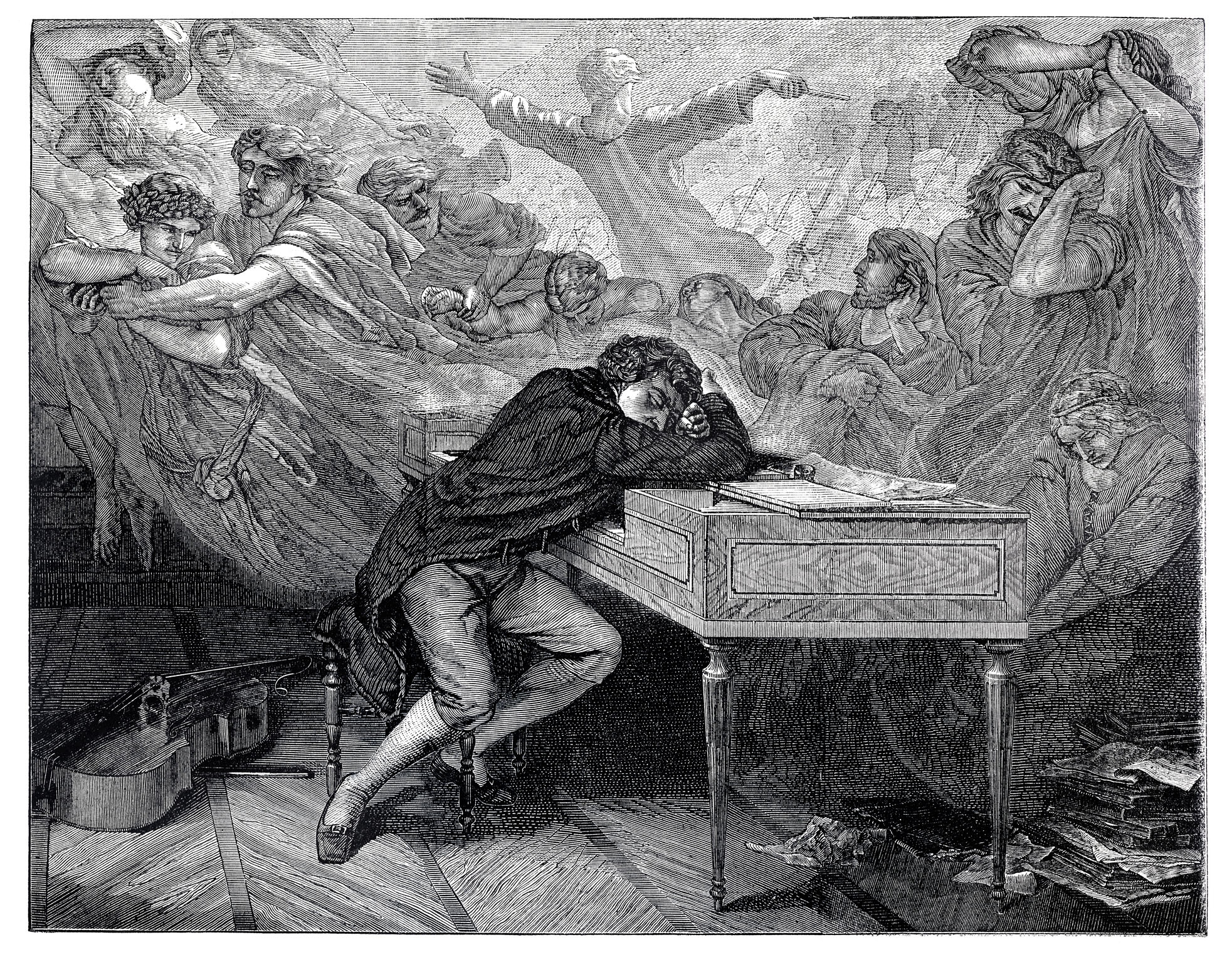 Ludwig van Beethoven.
Original edition from my own archives
Source : Correo de Ultramar 1864
Composition and Graveur : M. A. Lemud. Grafissimo/Getty Images
Ludwig van Beethoven.
Original edition from my own archives
Source : Correo de Ultramar 1864
Composition and Graveur : M. A. Lemud. Grafissimo/Getty Images A naught that is not naught is God,
consuming, like a coal,
the thought of thought of Him as odd
as form of forms, the soul.
God’s a naught that is not naught,
defying all the norms
of thought of thought that is the thought,
and soul, the form of forms.
God is not tranquility;
thoughts of Him candescent,
leading to incivility
between the cross, star, crescent.
Although embraced by millions,
Beethoven’s Joy with Schiller
ends when collaterally civilians
are sacrificed by war, its killer.
In James Joyce’s Ulysses, Stephen Dedalus speculates on Aristotle’s De Anima while hearing an imperfect recitation of Milton’s Lycidas:
Thought is the thought of thought. Tranquil Brightness. The soul is in a manner all that is: the soul is the form of forms. Tranquility sudden, vast, candescent: form of forms (Ulysses, 2: 67–76).
The last verse of Schiller’s Ode to Joy with which Beethoven’s Ninth Symphony concludes declares:
Be embraced, Millions!
This kiss to all the world!
Brothers, above the starry canopy
There must dwell a loving Father.
Are you collapsing, millions?
Do you sense the creator, world?
Seek him above the starry canopy!
Above stars must He dwell.
Gershon Hepner is a poet who has written over 25,000 poems on subjects ranging from music to literature, politics to Torah. He grew up in England and moved to Los Angeles in 1976. Using his varied interests and experiences, he has authored dozens of papers in medical and academic journals, and authored “Legal Friction: Law, Narrative, and Identity Politics in Biblical Israel.” He can be reached at gershonhepner@gmail.com.























 More news and opinions than at a Shabbat dinner, right in your inbox.
More news and opinions than at a Shabbat dinner, right in your inbox.